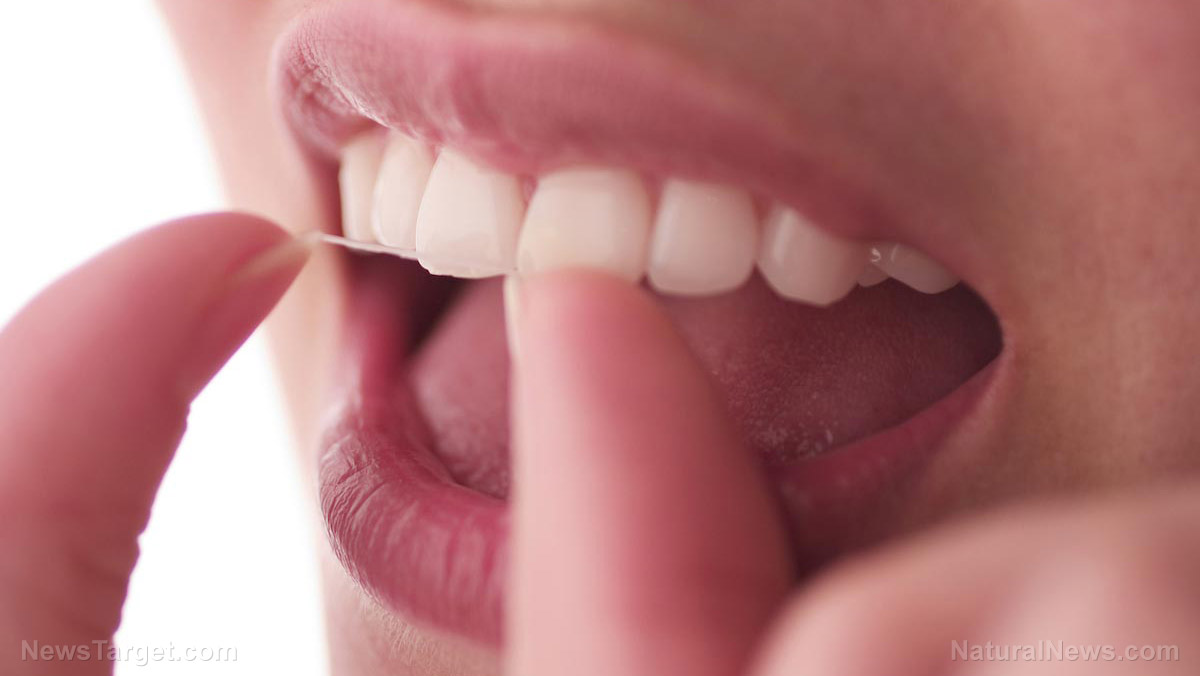War on weed: Cannabis can make your teeth fall out, claims ridiculous study
06/11/2017 / By Tracey Watson

Though it remains illegal at the federal level, a total of 29 states and the District of Columbia have now passed laws allowing for the medicinal use of marijuana. Eight of these, including D.C., have adopted even broader laws, allowing for the legal use of recreational marijuana. There are, of course, many who are unhappy with this turn of events, and who would like to vilify marijuana in the eyes of the public by using scare tactics to undermine its myriad health benefits. One such tactic is to convince people that if they use marijuana they will get gum disease and their teeth will fall out.
A study that would appear to reinforce this idea was performed by researchers from Columbia University. The research team analyzed information supplied by 1,938 participants in the Centers for Disease Control’s 2011/2012 National Health and Nutrition Examination Survey, to determine the effects of regular recreational cannabis use on teeth. Twenty-seven percent of participants reported using marijuana at least once in the preceding 12-month period.
The researchers were able to determine how many of the study participants had developed gum disease by measuring the spaces between their teeth and the surrounding gum area. Since healthy gums have no more than 3mm between the tooth and the gum, gaps larger than that are a reliable indicator of the presence of periodontal disease.
The study, which was published in the journal Periodontology, concluded that the participants who had reported using recreational marijuana frequently were at greater risk of developing moderate or even severe gum disease.
“Even controlling for other factors linked to gum disease, such as cigarette smoking, frequent recreational cannabis smokers are twice as likely as non-frequent users to have signs of periodontal disease,” said study author Dr. Jaffer Shariff.
Now, before you go throwing away your medical marijuana or hauling out the plants in your backyard, it is important to look at why there is a link between increased marijuana use and gum disease. [Stay up-to-date with the latest developments at Dentistry.news]
Livestrong explains the connection. Marijuana, whether smoked or consumed in another way, affects the nervous system in a way that reduces the amount of saliva in the mouth, which can result in a condition called xerostomia, or dry mouth. This lack of saliva can lead to bad breath and other issues, because saliva is needed to wash away bacteria and food from the teeth and gums. If left untreated, this could result in tooth decay and possible tooth loss. This excess of bacteria in the mouth can also result in gum disease, which again, without treatment, could result in tooth loss. Marijuana smokers should also be aware that excessive smoking, especially in combination with tobacco use, can increase their risk of developing oral cancer.
Ian Hamilton, a cannabis researcher with the University of York, explains that it is a lack of the necessary dental hygiene and care that can result in oral issues for marijuana users.
“[P]eople who use cannabis are less likely to brush their teeth or visit a dentist regularly, both factors can contribute to gum disease. In addition a combination of reduced saliva excretion and increased appetite commonly referred to as the ‘munchies’ are also important aspects which are thought to play a part in the increased risk of gum disease for people who smoke cannabis.”
It is, therefore, vitally important that marijuana users be made aware of the connection between poor oral hygiene and gum disease. They need to be conscious of rinsing their mouths out more often than usual to make sure they get rid of bacteria and food in their mouths. It would also be a good idea for them to visit a holistic dentist regularly and take other preventative steps to stay ahead of potential dental issues.
Sources:
Tagged Under: dentistry, gum disease, marijuana, prevention



















